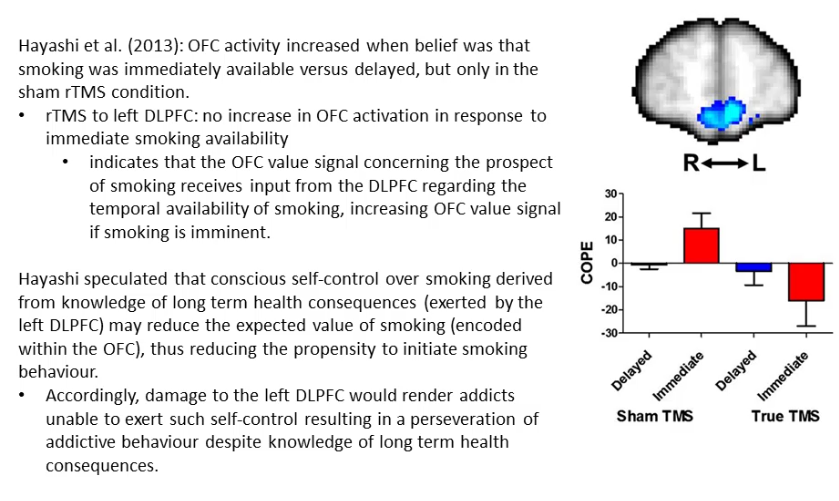Brain Mechanisms of Impaired Behavioural Control
Contents
Damage to the frontal lobe can affect brain mechanisms, including drug use control.
The frontal lobe is intricately interconnected, and there is no clear-cut cause-effect understanding of each area of the cortex
Orbitofrontal Cortex (OFC)
- Encodes the expected value of rewards (drug)
- Encodes the costs associated with rewards (expected harms)
- Switching reward target when the payoff is reduced
- Foresight into future consequences of reward-seeking behaviour
RELATED TO THE AFFECTIVE COMPONENT OF THE BRAIN
Study: Phineas Gage
Had a steel rod punch through his skull during a work accident. His left frontal lobe was damaged. Following recovery his social behaviour changed drastically, however his intellect was unhindered (including memory and planning)
Study: Frontal Lobotomy
Moniz (1935) was interested in the effects of the ablation of the prefrontal cortex in chimps. One of them was apparently "cured" of an "experimental neurosis"
A lobotomy practitioner, Freeman, believed the frontal lobe was involved in the ability to project an image of the individual into the future, coupled with a recognition of this image as the self. He also believed that the frontal lobes provided an emotional connection with the self to the image.
"Prefrontal lobotomy bleaches the affective component connected with the consciousness of the self" - Dolan, 2007
Study: Monkeys and Juice / Tea
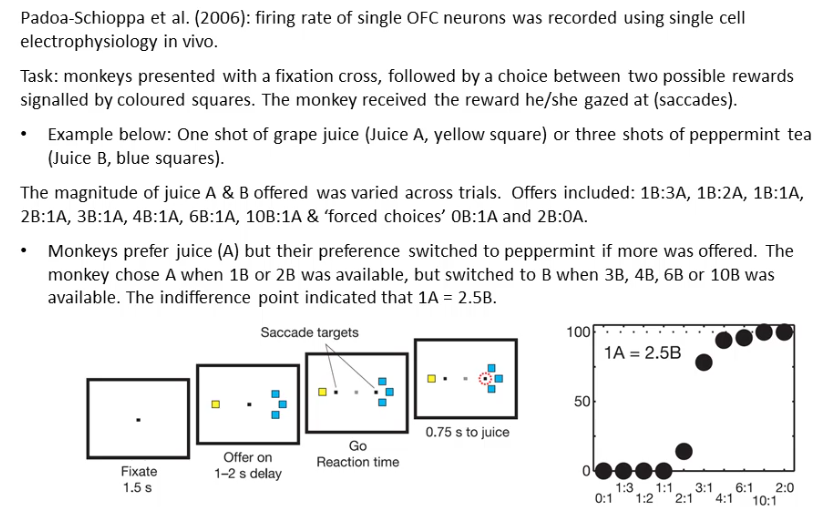
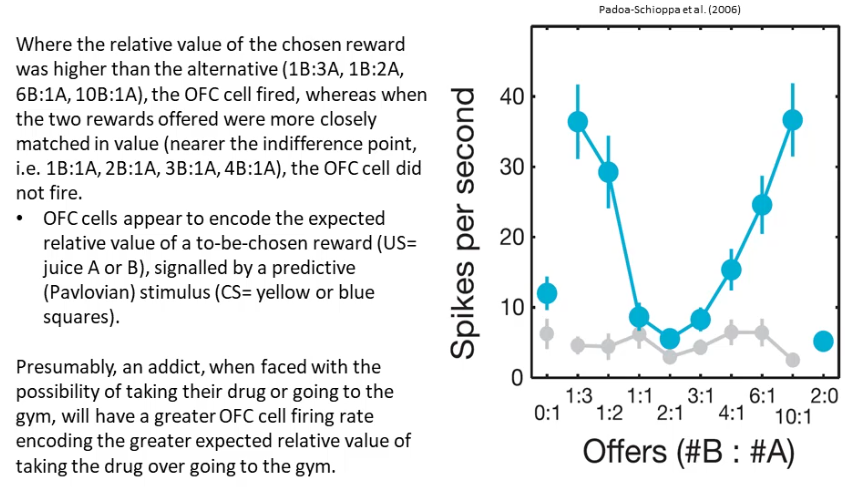
Study: Button Trigger
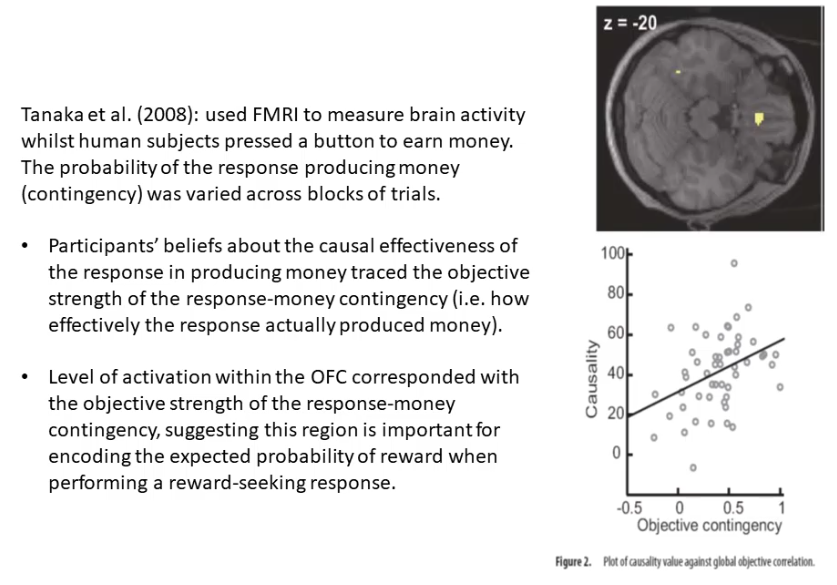
Study: Devaluation by Over-satiety
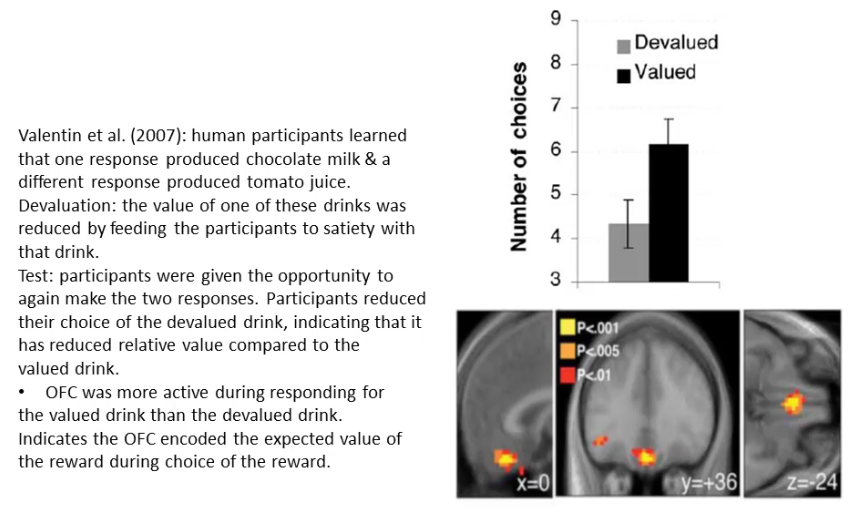
Study: Pavlovian Instrumental Transfer
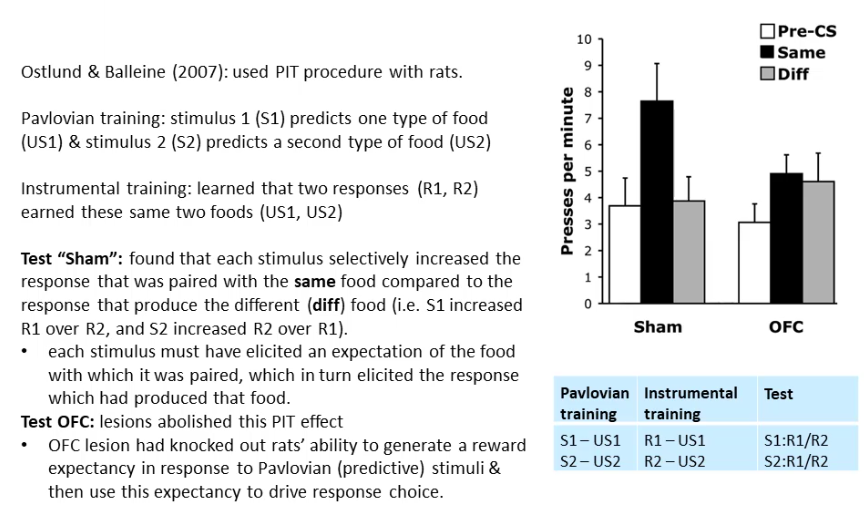
Rats with lesions were unable to transfer their response behaviours
Study: Cigarette Video
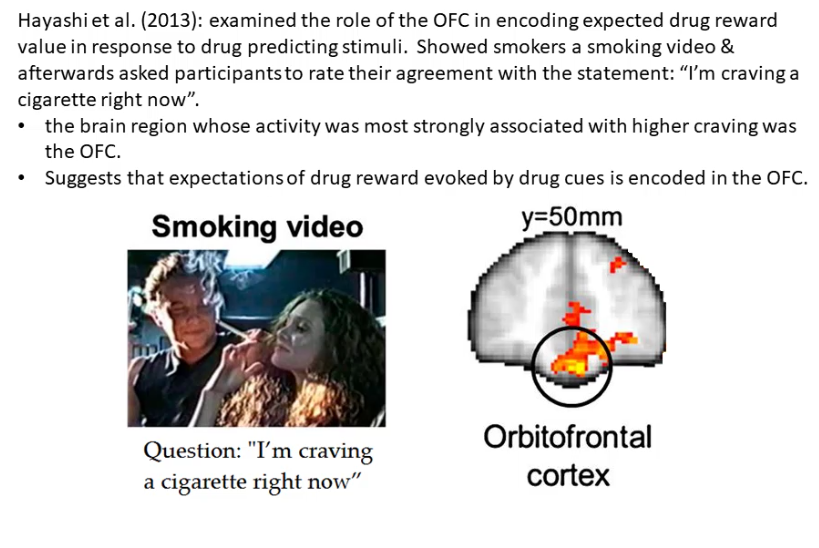
Expectations of drug rewards evoked by drug cues are encoded in the OFC
Trigger
When the relative value is higher than the alternative, the OFC cells fire.
Level of activation of OFC is related to the spike frequency
Costs
O'Doherty et al, 2001 - had S+ tasks (overall gain) and S- (overall loss).
OFC responds to wins, but the lateral parts responded to losses.
OFC is important for encoding both reward and punishment signals
Reversal Learning
Hornak, 2004 ran patients with damage to their OFC on the same task.
Participants would simply have to choose S+ tasks over S- tasks
After the first 13 trials, S+ and S- were reversed.
Patients with bilateral damage continued to choose the old S+ stimuli.
Patients with only unilateral damage, or damage to another frontal region, or no damage at all learned the new stimulus-reward relationship
Damage to the OFC impairs the ability to re-learn things. Learning things originally is still okay
Cocaine Usage
Stalnaker et al, 2006.
The overall percentage of rats under the influence of cocaine for two weeks that responded to a foul odour was less than the control percentage.
Cocaine alters the encoding of expected punishment in the OFC.
Time Costs
Roesch & Olsen, 2007.
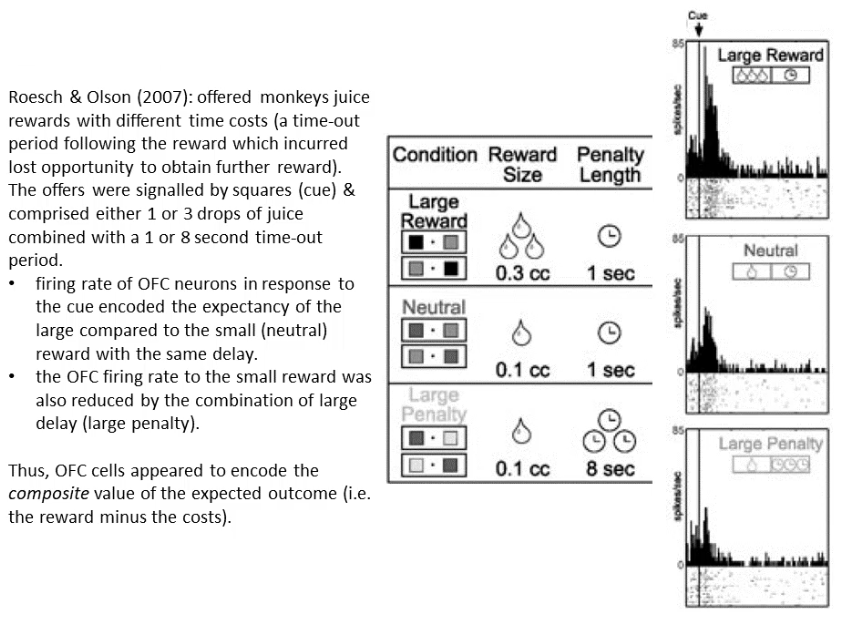
Delay Discounting
Choice of a smaller reward now, or a larger reward later
As the delay increased, the value decreases (loss of interest)
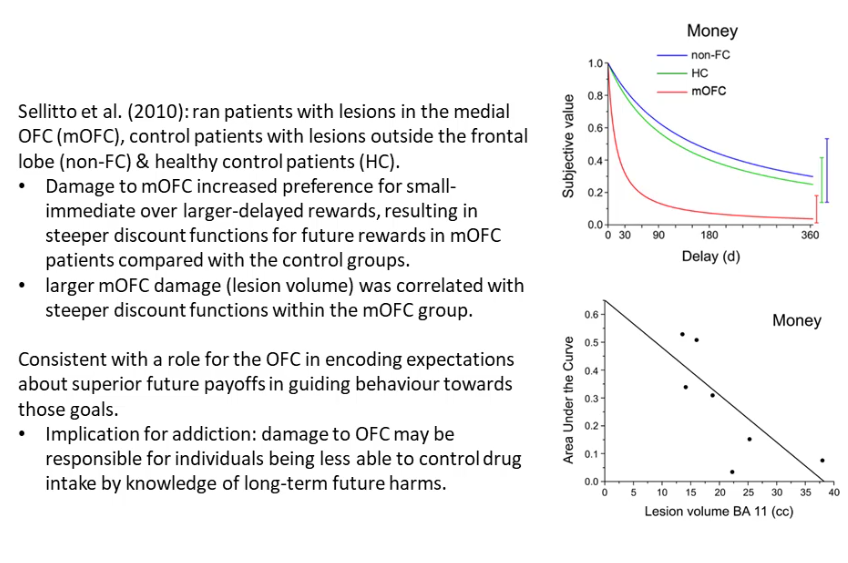
Damage to the OFC may be responsible for individuals being less able to control drug intake
Dorsolateral Prefrontal Cortex (DLPFC)
- Foresight into future consequences of behaviour
- Exerting contextual modulation of expected reward calculations made by the OFC
- Enhancing or decreasing expected drug value in circumstances
- Left DLPFC - Long term rewards and goals
- Reponsible for increasing craving in response to the immediate availability
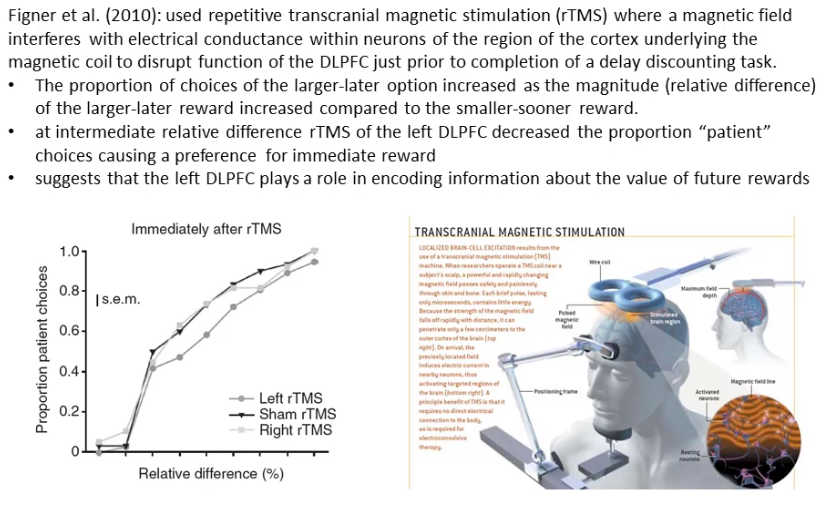
Left TLPFC - Evidence for contributing to the value of future rewards
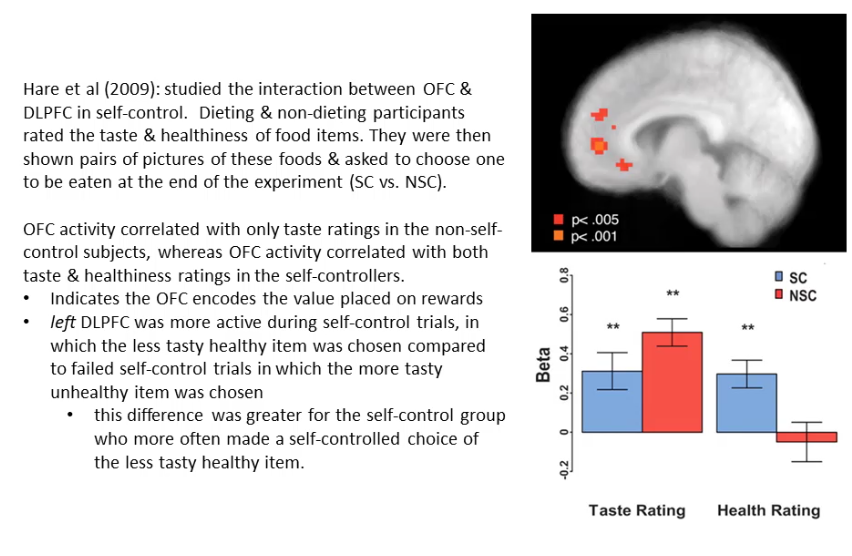
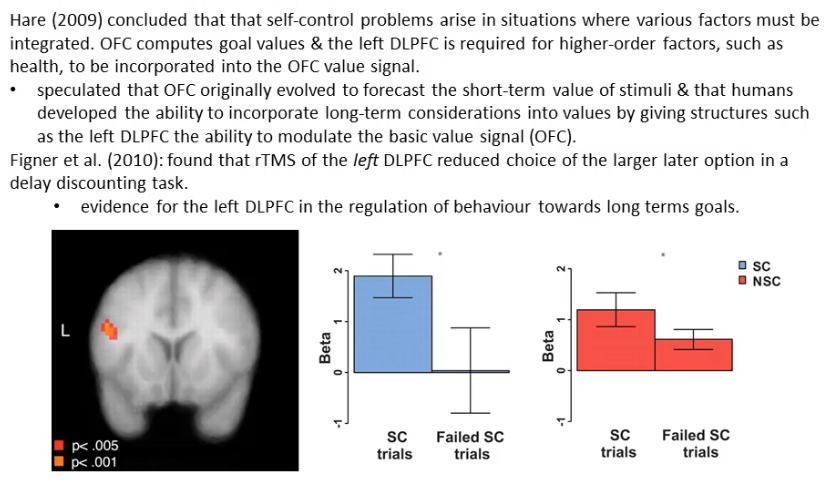
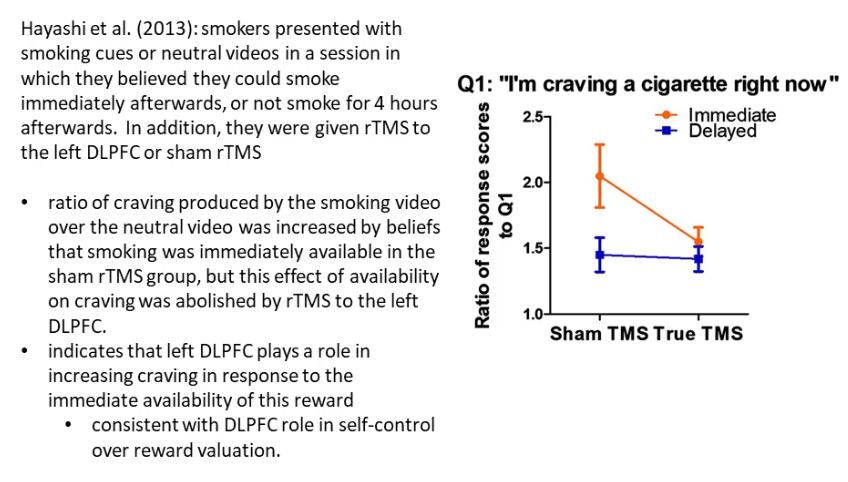
OFC encodes the value placed onto rewards.
Left DLPFC was more active for the self-control group
Higher activity when the smokers believed that they could smoke immediately after the video
Contextual Control
